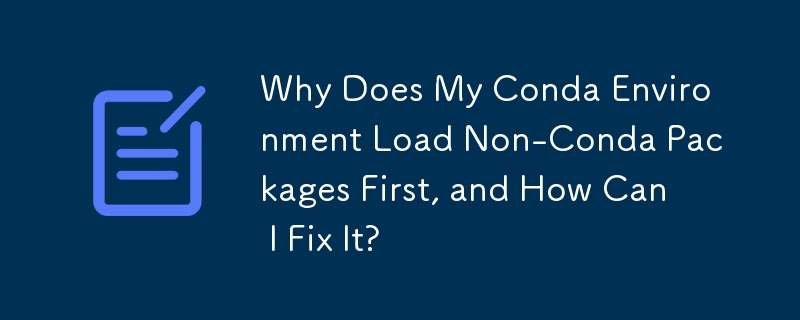

Unexpected Python Paths in Conda Environment: Understanding Prioritization and Solutions
Introduction:
In a Conda environment, the order of directories in the Python path can be surprising, with local non-Conda paths appearing before their Conda counterparts. This can lead to conflicts, as packages installed outside Conda may override those within.
Explanation:
This behavior is intentional and follows the specifications of PEP 370. The site module appends the user site directory to the system path prior to appending the Conda environment site-packages. This is because users may prefer to prioritize user-installed packages over system-wide installations.
Options:
There are several ways to prevent user-level packages from being loaded before Conda packages:
By understanding the reasons behind the default path prioritization and leveraging these options, you can customize your Conda environment to suit your specific needs and avoid package conflicts.
The above is the detailed content of Why Does My Conda Environment Load Non-Conda Packages First, and How Can I Fix It?. For more information, please follow other related articles on the PHP Chinese website!




